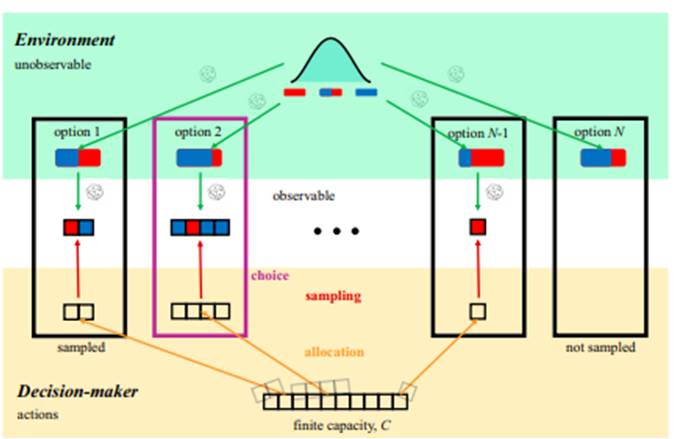A study presents better strategies for decision-making when resources are finite
This is what the breadth-depth dilemma proposes, which, despite having a long history, had not been studied in the area of cognitive theory and psychology. This paper was published on 5 August in the PNAS journal, and Rubén Moreno-Bote and Jorge Ramírez-Ruiz, both researchers at the Centre for Brain and Cognition, are lead authors.

The breadth-depth dilemma, applied to university studies, could be understood as follows: for students to learn something in-depth they need time, and if the syllabus is too broad, they can learn many things, only superficially. The question is, to make a great discovery at some point in our career, while we are studying, should we enrol in just a few courses or, on the contrary, enrol in many and thereby have a more generalist outlook? What is the optimal strategy for choosing the number of courses and number of subjects in each of them?
The breadth-depth dilemma can be applied for resolving problems when resources are finite. For example, companies, investors and foundations have to decide which resources –sometimes very limited– to allocate to foster new ideas. How should their economic resources be distributed to maximise the likelihood that an idea, just one, leads to a major discovery, such as a new vaccine for COVID-19? Should resources be spread broadly across many different ideas, or deeply in just a few?
The breadth-depth dilemma in decision-making
An article published in August in the Proceedings of the National Academy of Sciences, contemplates the breadth-depth dilemma as applied to decision-making. Through mathematical models, the authors have studied the breadth-depth dilemma in decision-making. “The advantage of using models is that they allow you to learn by making mistakes; you don’t need to make real-life decisions. The decisions are all taken in a virtual setting, in which there is not actual risk”, indicates Rubén Moreno-Bote, lead author of the paper and head of the Theoretical and Cognitive Neuroscience research group of the Centre for Brain and Cognition (CBC) in UPF’s Department of Information and Communication Technologies (DTIC).
This research has been undertaken in collaboration with Jorge Ramírez-Ruiz, one of the team members, together with researchers from Harvard Medical School in Boston (USA) and the University of Minnesota, in Minneapolis (USA).
The key is in the square root of the total resources
The authors propose the “square root sampling law”, which enables resources to be distributed in a way that is very close to optimal and which is very easy to implement.
A second contribution of this paper is the finding of “laws” through mathematical calculations, which has allowed for results beyond what other simulations or computers have been able to achieve, because of the large number of cases that would have to be contemplated.
The authors call it the “square root sampling law”, which enables resources to be distributed in a way that is very close to optimal and which is very easy to implement. According to this law, 100 million euros should be spread across 10 research projects, allocating 10 million euros to each. In other words, both the number of projects and how much is allocated to each one is the square root of the total resources.
Despite its long history, the breadth-depth dilemma had not been studied in the area of decision-making and psychology. “The contributions of our article, therefore, are fundamental”, say the paper’s authors. Other known dilemmas, such as exploration-exploitation or speed-accuracy, also offer heuristic rules, which enable close-to-optimal ways of working. But, as the authors add, “Although our square root sampling law may be outdone by other, better rules, which we describe in our paper, we were surprised to see that they are not a lot better than the heuristic rule we propose”.
Related work:
Rubén Moreno-Bote, Jorge Ramírez-Ruiz, Jan Drugowitsch, Benjamin I. Hayden (2020), "Heuristics and optimal solutions to the Breadth-depth dilemma", online edition, 5 august, PNAS. https://doi.org/10.1073/pnas.2004929117.
